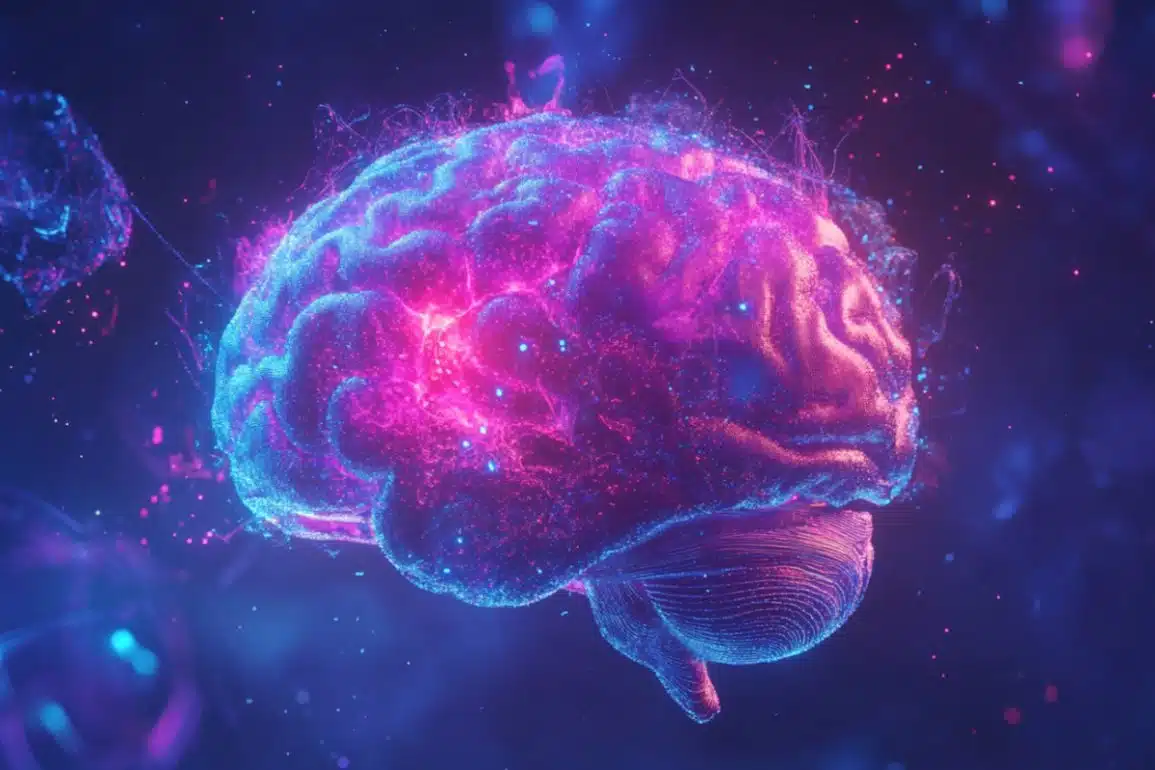https://neurosciencenews.com/psychedelics-brain-immune-system-28830/Psychedelics Rewire Brain-Immune CircuitsMay 7, 2025
Summary:
New research reveals that psychedelics like psilocybin do more than alter brain activity — they reshape how the brain and immune system communicate.
Scientists identified a pathway where chronic stress disrupts amygdala signaling, triggering immune responses that increase fear and anxiety.
Psychedelic compounds reversed this process, calming immune cells and reducing fear behaviors, offering a potential breakthrough for treating psychiatric and inflammatory conditions. This marks a paradigm shift, suggesting mental health treatments may need to target neuroimmune circuits, not just neurons.
■ Key Facts:
● Neuroimmune Rewiring: Psychedelics reset brain-immune communication disrupted by chronic stress.
● Therapeutic Promise: This dual action may explain psychedelic benefits across psychiatric and inflammatory disorders.
● Paradigm Shift: Findings suggest mental health treatments should target both neural and immune pathways.
In a compelling Genomic Press interview published today, rising scientific star Dr. Michael Wheeler unveils revolutionary findings about how psychedelics reshape communication between the brain and immune system, potentially transforming treatments for psychiatric disorders and inflammatory diseases alike.Bridging the Mind-Body Divide
As an Assistant Professor at Harvard Medical School and investigator at Brigham and Women’s Hospital, Dr. Wheeler stands at the frontier of neuroimmunology, a field exploring how the nervous and immune systems interact.

 psychedelics-immune-system-neurosciecne-1155x770.jpg.webp (44.8 kB . 1155x770 - viewed 639 times)
psychedelics-immune-system-neurosciecne-1155x770.jpg.webp (44.8 kB . 1155x770 - viewed 639 times)Remarkably, psychedelics can interrupt this process at multiple points, reducing both immune cell accumulation and fear behaviors. Credit: Neuroscience News
His groundbreaking research, recently validated in Nature (April 23, 2025; "
https://doi.org/10.1038/s41586-025-08880-9"), demonstrates that psychedelics like psilocybin don’t just affect neurons: they fundamentally reshape immune responses tied to fear and stress.
“We found that astrocytes in the amygdala use a specific receptor called EGFR to limit stress-induced fear,” explains Dr. Wheeler. “
When chronic stress disrupts this signaling, it leads to a cascade involving brain-resident cells and immune cells that ultimately increases fear behavior. What is fascinating is that psychedelic compounds can reverse this entire process.”
This finding represents a paradigm shift in understanding psychedelics’ therapeutic potential. Rather than simply acting on neural pathways, these compounds appear to recalibrate entire neuroimmune circuits.
Could this dual action explain why psychedelics show promise across diverse conditions from depression to addiction? And might they eventually prove useful for treating inflammatory disorders that have no apparent psychiatric component?
From Legal Defender to Brain-Immune Explorer:
Dr. Wheeler’s journey to this breakthrough began in an unexpected place, the Public Defender’s office in Baltimore City.
“I felt that the actions of the people we defended were so inextricably linked with their environmental circumstances, inclusive of physical or emotional abuse beyond their control, that I was desperate to understand the inner workings of their minds,” Dr. Wheeler reflects.
This early experience shaped his scientific mission to unravel how environmental factors—including stress and trauma—reshape our internal neurobiology.
Following this passion, he made the courageous decision to join the lab of an immunologist during his postdoctoral training despite having no background in the field.
“One of the most intimidating choices I made was joining the lab of an Immunologist during my post-doc,” notes Dr. Wheeler.
“I only trained in Neuroscience at that point, so when I looked at Francisco’s papers on dendritic cells and T cells, I was nervous about what I was getting into.”
This interdisciplinary leap proved transformative and by bringing together insights from neuroscience and immunology, Dr. Wheeler identified previously hidden communication channels between the brain and immune system that may help explain why traditional psychiatric treatments often yield inconsistent results.
Mapping the Brain-Body InterfaceDr. Wheeler’s laboratory employs cutting-edge technologies including genomic screening, single-cell analysis, and behavioral studies to create what he describes as a “wiring diagram” of brain-immune communication.
His team’s recent Nature publication demonstrates that when chronic stress disrupts normal signaling in the amygdala—a key brain region for processing fear—it triggers an inflammatory cascade involving immune cells in the meninges (the protective membranes surrounding the brain).
Remarkably, psychedelics can interrupt this process at multiple points, reducing both immune cell accumulation and fear behaviors.
This research raises intriguing questions about traditional approaches to psychiatric disorders.
If mental health conditions have significant immune components, might we need to rethink treatment strategies that focus exclusively on neurotransmitters? Could new therapeutic agents that target both neural and immune pathways prove more effective than current options?
Looking ahead, Dr. Wheeler envisions a revolution in thinking about neuropsychiatric disorders.
“I am excited about the prospect of identifying brain-body communication loops as a fundamental feature of physiology,” he states.
“Often, we think of mental health disorders based on their behavioral symptoms. However, we are likely leaving much underlying biology on the table by focusing solely on the brain.”
Team Science and Cross-Disciplinary CollaborationDr. Wheeler emphasizes that his success stems from collaborative team science rather than solitary genius. As a laboratory leader, he values bringing together people with diverse scientific backgrounds to create synergistic insights that no individual could achieve alone.










